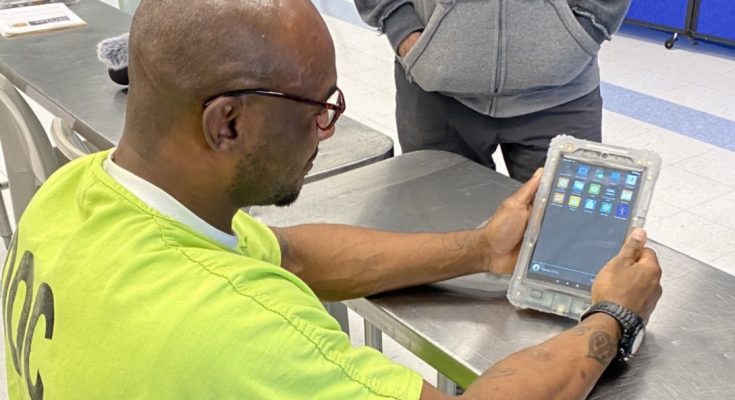The Delaware Department of Correction (DOC) has given each inmate a programming tablet. This initiative, reportedly completed at no cost to taxpayers, aims to enhance communication with family and community supports while expanding access to rehabilitative programming, treatment, and reentry resources. This rollout represents a significant evolution in DOC’s approach to inmate services.
The tablet program, first piloted in 2019 through a partnership with ViaPath Technologies, initially focused on improving communication by enabling messaging and phone services. During the COVID-19 pandemic, the need for such technology grew, as in-person visitation was disrupted according to the DOC. By 2020, tablets were fully deployed in Delaware prisons, and in 2023, they were introduced in community corrections facilities, including wall-mounted devices for video visitation.
Until this year, inmates shared a limited number of tablets, restricting access to programming and educational content. Recognizing the need for broader access, the DOC collaborated with ViaPath Technologies to provide a one-to-one tablet-to-inmate ratio. Over the summer, technicians upgraded facility infrastructure to ensure the new system could function effectively, even in environments with thick concrete walls and steel doors. More than 4,000 tablets have since been distributed to meet this goal.
Commissioner Terra Taylor emphasized the transformative impact of the tablets, noting their ability to connect inmates to on-demand learning, treatment resources, and communication tools. “This initiative not only enhances communication with families but also fosters personal growth, reduces tension, and improves safety within our facilities,” Taylor said. Free educational and career-building resources have been particularly popular, with inmates spending millions of minutes on these features in October 2024 alone.
The DOC plans to expand free virtual content and programming while maintaining affordability for inmates and families. Key features include a robust library app, career and life skills training, legal research tools, and faith-based resources. Communication services like messaging, phone calls, and video visits remain essential components, with inmates making over 12 million connections with loved ones in the past yearofficials said. Tablets operate on a secure, monitored network, ensuring safety and compliance with regulatory standards.

